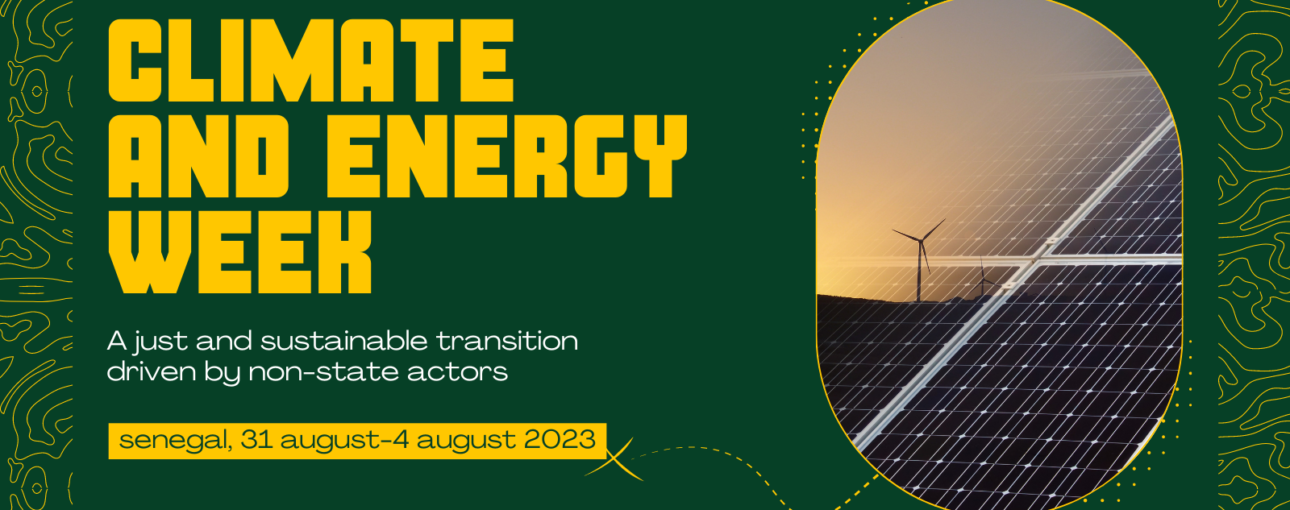Climate and Energy Week
The Climate and Energy Week, to be held from 31 July to 04 August 2023 at Hotel Filaos in Saly, Mbour, Senegal, offers a significant opportunity for non-state actors to drive a just and sustainable transition in the fight against climate change. Organized by Enda Energie, in collaboration with the European Union, OXFAM, APRI, and other partners, the event seeks to address the urgent need for scaling up climate action and increasing ambitions to combat the global climate crisis.
The Global Stocktake, scheduled for the first time in 2023, presents a critical moment for assessing global progress in reducing greenhouse gas emissions, building climate resilience, and securing financial support to tackle climate challenges. However, current commitments under the Nationally Determined Contributions (NDCs) indicate that the world is still far from achieving the target of stabilizing global temperature rise at 1.5 degrees Celsius. The alarming projections by the Intergovernmental Panel on Climate Change (IPCC) further underscore the necessity for more ambitious climate action.
The Climate and Energy Week aims to be a catalyst for climate action, pushing countries to enhance their NDCs and intensify international cooperation for climate initiatives. To ensure a low-carbon, climate-resilient, and equitable future, a just and sustainable transition is essential. This paradigm shift requires the active involvement of all stakeholders and actors, including governments, civil society organizations, private sectors, and local communities. The event provides a framework for exchanging experiences, sharing best practices, and fostering peer-to-peer learning.
The week-long event is structured around various sessions addressing critical climate-related topics. The first session focuses on the territorialization of climate policies and local climate actions, emphasizing the importance of integrating local authorities and non-state actors’ initiatives into global assessments and NDC implementation reports.
The Energy-Water-Agriculture Nexus session in the regional segment explores the interconnectedness of these sectors and their implications for climate change responses. Additionally, the Loss & Damage & Climate Finance session seeks to strengthen knowledge on loss and damage and advocates for prioritizing this issue in national policies and strategies on climate change.
The Locally Led Adaptation (LLA) session is dedicated to promoting participatory approaches and bottom-up solutions in climate adaptation, highlighting three case studies in Senegal. This session will share scientific products related to the implementation of the NDC and gather recommendations from stakeholders to enhance climate governance processes.
The event culminates with the Climate Negotiations session, which aims to co-construct advocacy positions for COP28. It acknowledges the diplomatic hurdles faced during the Bonn negotiations and underscores the crucial role of non-state actors in achieving ambitious outcomes at COP28.
Throughout the week, the Climate and Energy Week will serve as a platform for dialogue, exchange, and co-construction of positions on climate issues to prepare for COP28 effectively. By bringing together a diverse array of stakeholders, the event aims to bolster local climate actions, promote good practices, and formulate a common roadmap for COP28. Together, these efforts will contribute to accelerating climate action and steering the world towards a sustainable and resilient future.

